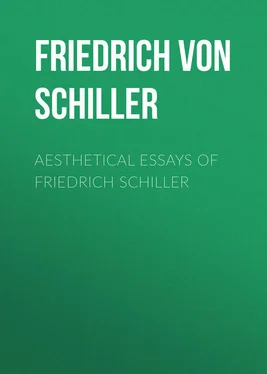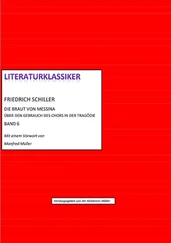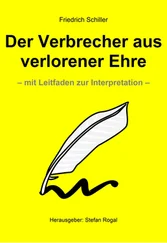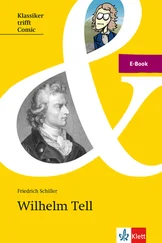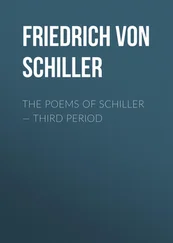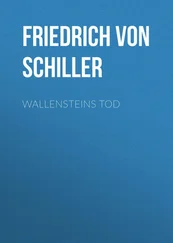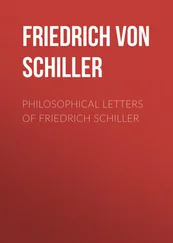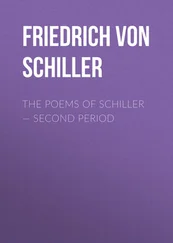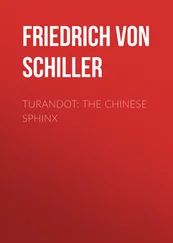Friedrich Schiller - Aesthetical Essays of Friedrich Schiller
Здесь есть возможность читать онлайн «Friedrich Schiller - Aesthetical Essays of Friedrich Schiller» — ознакомительный отрывок электронной книги совершенно бесплатно, а после прочтения отрывка купить полную версию. В некоторых случаях можно слушать аудио, скачать через торрент в формате fb2 и присутствует краткое содержание. Жанр: literature_18, foreign_antique, foreign_prose, на английском языке. Описание произведения, (предисловие) а так же отзывы посетителей доступны на портале библиотеки ЛибКат.
- Название:Aesthetical Essays of Friedrich Schiller
- Автор:
- Жанр:
- Год:неизвестен
- ISBN:нет данных
- Рейтинг книги:3 / 5. Голосов: 1
-
Избранное:Добавить в избранное
- Отзывы:
-
Ваша оценка:
- 60
- 1
- 2
- 3
- 4
- 5
Aesthetical Essays of Friedrich Schiller: краткое содержание, описание и аннотация
Предлагаем к чтению аннотацию, описание, краткое содержание или предисловие (зависит от того, что написал сам автор книги «Aesthetical Essays of Friedrich Schiller»). Если вы не нашли необходимую информацию о книге — напишите в комментариях, мы постараемся отыскать её.
Aesthetical Essays of Friedrich Schiller — читать онлайн ознакомительный отрывок
Ниже представлен текст книги, разбитый по страницам. Система сохранения места последней прочитанной страницы, позволяет с удобством читать онлайн бесплатно книгу «Aesthetical Essays of Friedrich Schiller», без необходимости каждый раз заново искать на чём Вы остановились. Поставьте закладку, и сможете в любой момент перейти на страницу, на которой закончили чтение.
Интервал:
Закладка:
This pure and rational idea of the beautiful – supposing it can be placed in evidence – cannot be taken from any real and special case, and must, on the contrary, direct and give sanction to our judgment in each special case. It must therefore be sought for by a process of abstraction, and it ought to be deduced from the simple possibility of a nature both sensuous and rational; in short, beauty ought to present itself as a necessary condition of humanity. It is therefore essential that we should rise to the pure idea of humanity, and as experience shows us nothing but individuals, in particular cases, and never humanity at large, we must endeavor to find in their individual and variable mode of being the absolute and the permanent, and to grasp the necessary conditions of their existence, suppressing all accidental limits. No doubt this transcendental procedure will remove us for some time from the familiar circle of phenomena, and the living presence of objects, to keep us on the unproductive ground of abstract idea; but we are engaged in the search after a principle of knowledge solid enough not to be shaken by anything, and the man who does not dare to rise above reality will never conquer this truth.
LETTER XI
If abstraction rises to as great an elevation as possible, it arrives at two primary ideas, before which it is obliged to stop and to recognize its limits. It distinguishes in man something that continues, and something that changes incessantly. That which continues it names his person; that which changes his position, his condition.
The person and the condition, I and my determinations, which we represent as one and the same thing in the necessary being, are eternally distinct in the finite being. Notwithstanding all continuance in the person, the condition changes; in spite of all change of condition the person remains. We pass from rest to activity, from emotion to indifference, from assent to contradiction, but we are always we ourselves, and what immediately springs from ourselves remains. It is only in the absolute subject that all his determinations continue with his personality. All that Divinity is, it is because it is so; consequently it is eternally what it is, because it is eternal.
As the person and the condition are distinct in man, because he is a finite being, the condition cannot be founded on the person, nor the person on the condition. Admitting the second case, the person would have to change; and in the former case, the condition would have to continue. Thus in either supposition, either the personality or the quality of a finite being would necessarily cease. It is not because we think, feel, and will that we are; it is not because we are that we think, feel, and will. We are because we are. We feel, think, and will because there is out of us something that is not ourselves.
Consequently the person must have its principle of existence in itself, because the permanent cannot be derived from the changeable, and thus we should be at once in possession of the idea of the absolute being, founded on itself; that is to say, of the idea of freedom. The condition must have a foundation, and as it is not through the person, and is not therefore absolute, it must be a sequence and a result; and thus, in the second place, we should have arrived at the condition of every independent being, of everything in the process of becoming something else: that is, of the idea of tine. "Time is the necessary condition of all processes, of becoming (Werden);" this is an identical proposition, for it says nothing but this: "That something may follow, there must be a succession."
The person which manifested itself in the eternally continuing Ego, or I myself, and only in him, cannot become something or begin in time, because it is much rather time that must begin with him, because the permanent must serve as basis to the changeable. That change may take place, something must change; this something cannot therefore be the change itself. When we say the flower opens and fades, we make of this flower a permanent being in the midst of this transformation; we lend it, in some sort, a personality, in which these two conditions are manifested. It cannot be objected that man is born, and becomes something; for man is not only a person simply, but he is a person finding himself in a determinate condition. Now our determinate state of condition springs up in time, and it is thus that man, as a phenomenon or appearance, must have a beginning, though in him pure intelligence is eternal. Without time, that is, without a becoming, he would not be a determinate being; his personality would exist virtually no doubt, but not in action. It is not by the succession of its perceptions that the immutable Ego or person manifests himself to himself.
Thus, therefore, the matter of activity, or reality, that the supreme intelligence draws from its own being, must be received by man; and he does, in fact, receive it, through the medium of perception, as something which is outside him in space, and which changes in him in time. This matter which changes in him is always accompanied by the Ego, the personality, that never changes; and the rule prescribed for man by his rational nature is to remain immutably himself in the midst of change, to refer all perceptions to experience, that is, to the unity of knowledge, and to make of each of its manifestations of its modes in time the law of all time. The matter only exists in as far as it changes: he, his personality, only exists in as far as he does not change. Consequently, represented in his perfection, man would be the permanent unity, which remains always the same, among the waves of change.
Now, although an infinite being, a divinity could not become (or be subject to time), still a tendency ought to be named divine which has for its infinite end the most characteristic attribute of the divinity; the absolute manifestation of power – the reality of all the possible – and the absolute unity of the manifestation (the necessity of all reality). It cannot be disputed that man bears within himself, in his personality, a predisposition for divinity. The way to divinity – if the word "way" can be applied to what never leads to its end – is open to him in every direction.
Considered in itself, and independently of all sensuous matter, his personality is nothing but the pure virtuality of a possible infinite manifestation; and so long as there is neither intuition nor feeling, it is nothing more than a form, an empty power. Considered in itself, and independently of all spontaneous activity of the mind, sensuousness can only make a material man; without it, it is a pure form; but it cannot in any way establish a union between matter and it. So long as he only feels, wishes, and acts under the influence of desire, he is nothing more than the world, if by this word we point out only the formless contents of time. Without doubt, it is only his sensuousness that makes his strength pass into efficacious acts, but it is his personality alone that makes this activity his own. Thus, that he may not only be a world, he must give form to matter, and in order not to be a mere form, he must give reality to the virtuality that he bears in him. He gives matter to form by creating time, and by opposing the immutable to change, the diversity of the world to the eternal unity of the Ego. He gives a form to matter by again suppressing time, by maintaining permanence in change, and by placing the diversity of the world under the unity of the Ego.
Now from this source issue for man two opposite exigencies, the two fundamental laws of sensuous-rational nature. The first has for its object absolute reality; it must make a world of what is only form, manifest all that in it is only a force. The second law has for its object absolute formality; it must destroy in him all that is only world, and carry out harmony in all changes. In other terms, he must manifest all that is internal, and give form to all that is external. Considered in its most lofty accomplishment, this twofold labor brings back to the idea of humanity, which was my starting-point.
Читать дальшеИнтервал:
Закладка:
Похожие книги на «Aesthetical Essays of Friedrich Schiller»
Представляем Вашему вниманию похожие книги на «Aesthetical Essays of Friedrich Schiller» списком для выбора. Мы отобрали схожую по названию и смыслу литературу в надежде предоставить читателям больше вариантов отыскать новые, интересные, ещё непрочитанные произведения.
Обсуждение, отзывы о книге «Aesthetical Essays of Friedrich Schiller» и просто собственные мнения читателей. Оставьте ваши комментарии, напишите, что Вы думаете о произведении, его смысле или главных героях. Укажите что конкретно понравилось, а что нет, и почему Вы так считаете.
